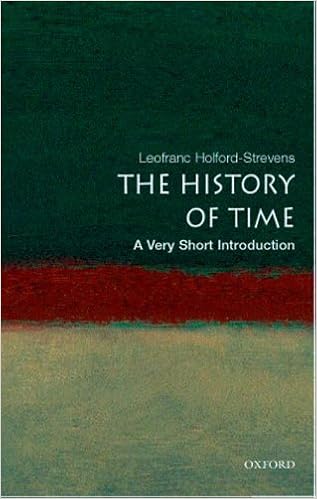It's easy to take today's date for granted, or yesterday's, or tomorrow's, but as Holford-Strevens's very short introduction shows, for much of time--indeed, for many other parts of the world--the date, or even the time of day, can vary quite substantially, depending on which calendar you use and accept.
Calendars have come to seem less certain for me in the past few years in part because of a lack of consensus regarding which one to use within the very small faith to which I belong. We use the Jewish calendar, but which one? While most of the Jewish world follows a calendar put into writing by Hillel centuries ago, others rejected that calendar, preferring instead other systems. Does the Passover always have to fall after the vernal equinox? Does the Day of Atonement always have to fall either on the weekly Sabbath or at least one day away from it? Does the festival of the Eighth Day always have to fall at least one day away from the Sabbath also? All these are things set up in the intercalated calendar used by most, but not by all--and practices have varied with time and place.
Such controversies are no less evident in the mainstream Christian world, where the date of Easter has varied also with the calendar one chooses to use, and Holford-Strevens in fact provides an entire chapter on the varying customs of reckoning this holiday throughout time and place.
Or what of societies whose years are calculated by these different calendars, where our years start in different places? Or, worse, where there is no such thing as BC and AD? No doubt, historians have their work cut out for them when the dating of years is given in such broad terms as "three generations ago" (as it was in some ancient Greek histories), but similarly confusing, no doubt, is trying to reconcile dates of events in nations who remained on the Julian calendar long after the Gregorian calendar had come into vogue (one's June 19 may be another's June 8).
On the level of spurring thinking about what we take as so commonplace, Holford-Strevens's book does a great job. As for the writing itself, I found it a bit too technical for an introduction for a general reader, and I wonder, with it clocking in at under 150 very-small pages, how useful it would be as a reference to someone more technically inclined. For my liking, a book on the clock by Jo Ellen Barnett, Time's Pendulum, would have been more along the lines of the kind of introduction to timekeeping in general that I was hoping for.
Subscribe to:
Post Comments (Atom)







No comments:
Post a Comment